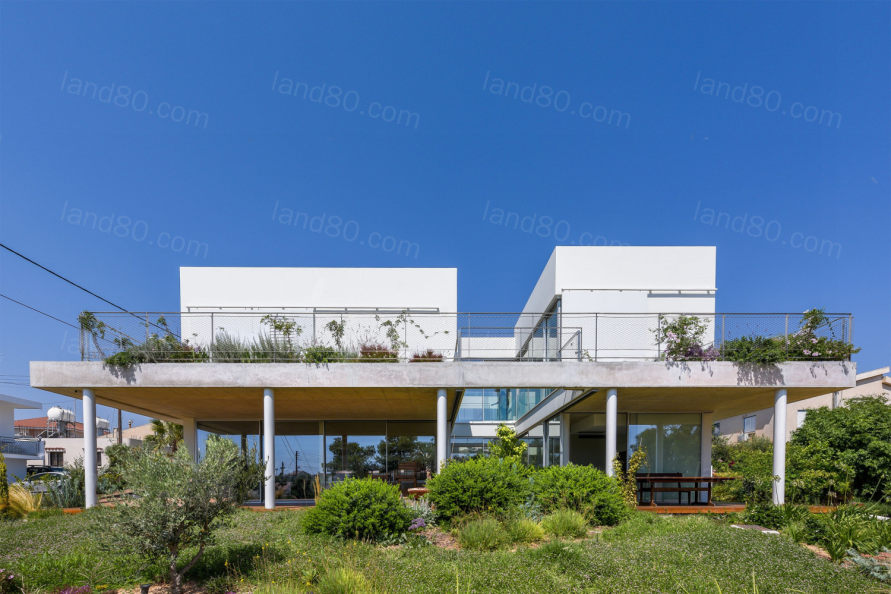将大自然带回城市中
将大自然带回城市虽然不是一种新的想法,但却是一项日益紧迫的任务,尤其是像Nicosia这样城市规划中没有把绿化和公共空间列为优先事项的城市。在疫情隔离的期间,我们重新发现了房屋的基本价值,再次意识到我们需要更多的户外区域、阳台和屋顶来锻炼身体和进行我们爱好的运动。自由突破享受露天空间、与自然和邻居交流的需求,在这次疫情中变得比以往任何时候都更令人向往。这次疫情问题的到来提醒了之前习以为常的事物的宝贵,加速了以创造性的方式将自然融入城市的进程。
Bringing nature back to the city
Bringing nature back to the city although not a new idea it is a growing imperative especially for cities like Nicosia which has failed to make greenery and communal public areas a priority in its urban planning. During lock-down we rediscovered the essential value of our houses, realising once again our need for more outdoor areas, balconies and rooftops to exercise and practise our hobbies. The need to freely breakout to enjoy open-air spaces and connect with nature and neighbours has become more desirable than ever during the pandemic. But again the virus issue came only to emphasise what is already known through systematically forgotten and ignored, the urge to accelerate the process of incorporating nature in our cities in creative ways.

这座住宅将自然带回城市,促进居民之间的共享空间和社会对话,这是我们设计“花园住宅”的灵感所在。我们的设计强调了私人城市花园的潜力和它们创造的小气候,以改善城市的生活条件以及减缓了全球变暖。
A house that brings nature back to the city, promoting shared spaces and social dialogue between its residents is what inspired us to design the ‘’garden house’’. Our design emphasises the potential for private urban gardens and the microclimates they create to improve living conditions within cities and slow global warming.



项目不像其他普通住宅一样将花园隐藏在栅栏后面,而且采用了一面玻璃打开空间,以形成相邻公共绿地的自然延续。住宅尝试在社区、私家花园和公园之间建立统一的关系,建筑、街道和公共空间等城市元素并不被看作是孤立的活动空间,而是作为单一的同一种配置,因为住宅成为公园的一部分,公园也包括在住宅之中。
Not hiding behind fences and fully glazed on one side, our proposal aims to form a physical continuation of the adjacent public green area. The house seeks to establish a unified relationship between the neighbourhood, the private garden and the public park. Urban elements such as building, street and public space are not treated as absolute activities in isolation but as one single homogeneous configuration as the house becomes part of the park and the park is included in the house.







住宅中融入绿色空间,60%的地下空间用于种植花园,底层利用绿化平台,提供景观和40种本土野花。内部的所有区域都与外部空间相连,并围绕两个白色立方体之间的绿色中央庭院组织起来。为城市中的自然创造空间,不仅给城市结构带来美,而且鼓励当地的鸟类和蜜蜂回归,从而使城市保持生物多样性,最重要的是,项目还促进人类的健康和福祉。
The integration of green areas into the house incorporates the planting of gardens on 60% of the ground floor, the use of green terrace on the first floor, the provision of bee-friendly landscapes and 40 kinds of native wildflowers. All areas inside flow on the outer spaces and are organized around a green central courtyard placed in-between two white cubic volumes. Making space for nature in the city not only brings beauty to the urban fabric but encourages the return of local bird species and bees maintaining thus urban biodiversity; furthermore, it promotes human health and well-being.



Project Name: The Garden House in the city
Architecture Firm: Christos Pavlou Architecture
Firm Location: Nicosia, Cyprus.
Completion Year: 2019
Gross Built Area: 182 sq.m
Structural Engineer: Andreas Charalambous
Landscape: Solomou Landscaping
Mechanical engineer: G. Katsambas
Electrical engineer: eplan electrical consultants LLC.
Aluminium design: Rabel 3D systems.
Project Location: Nicosia, Cyprus
Budget: 320.000 euro
|